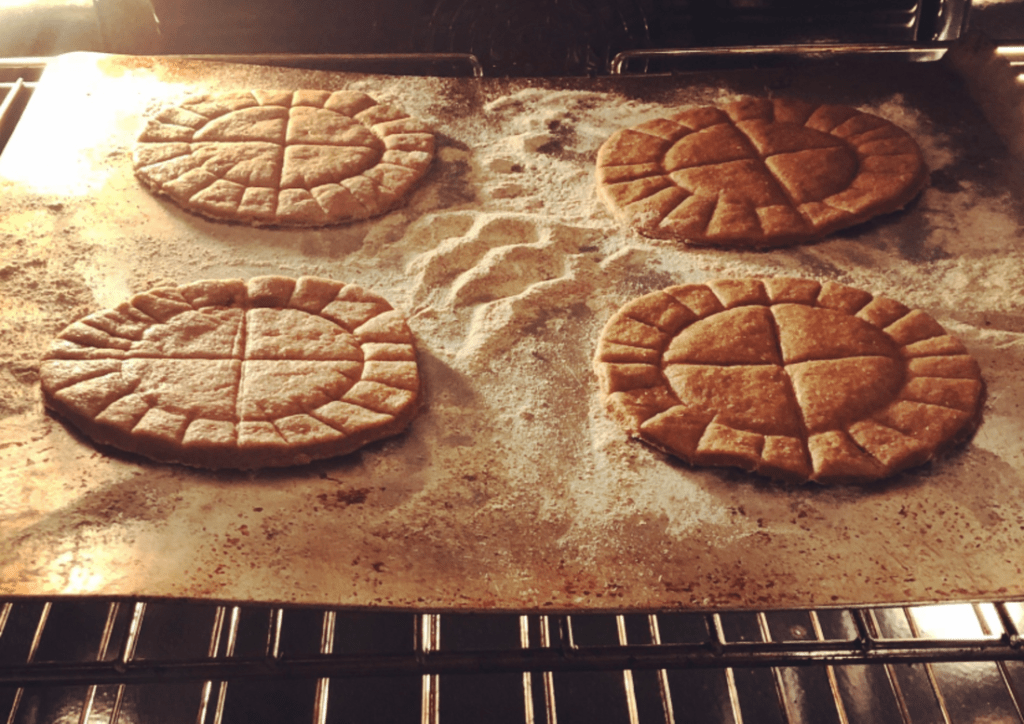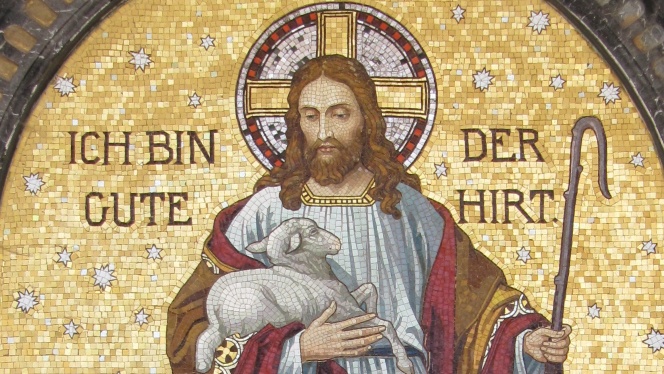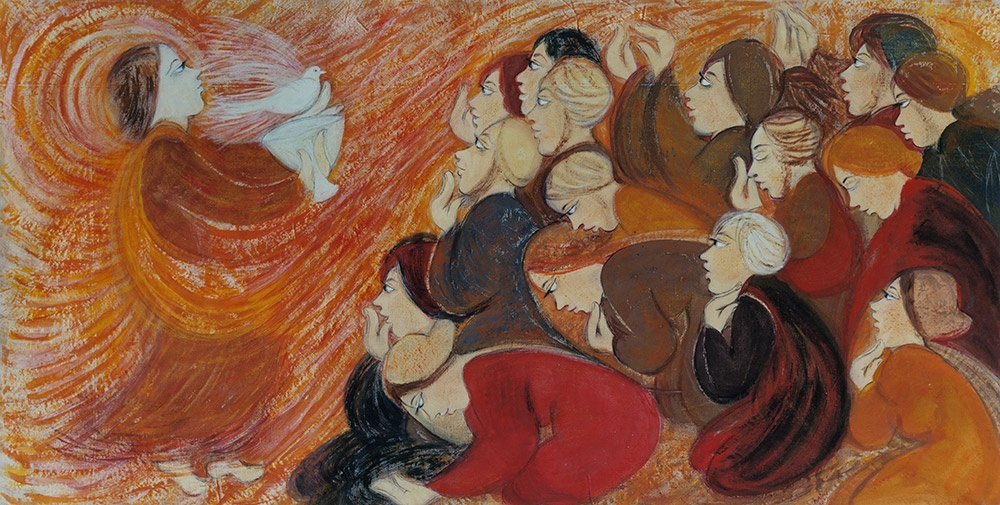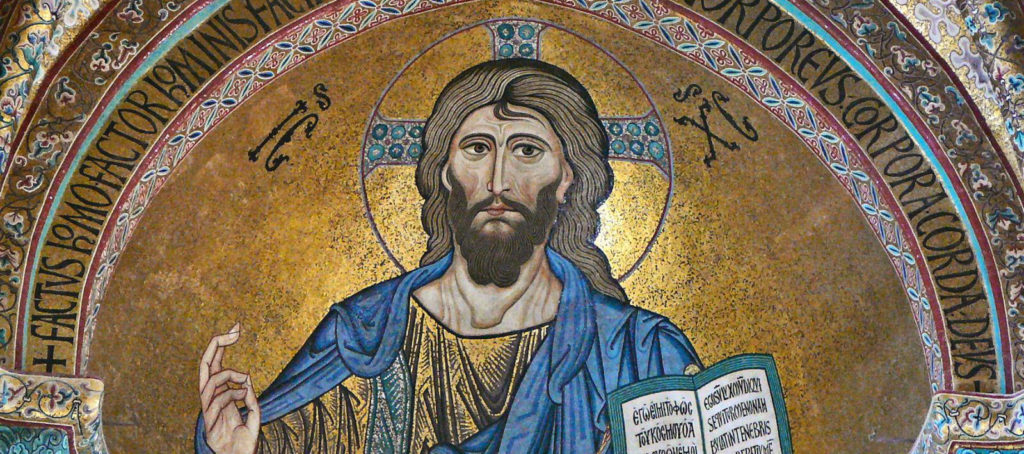
The Seventh Sunday After Pentecost
Proper 12
July 28th, 2019
The readings for this week are:
Genesis 18:20-32
Psalm 138
Colossians 2:6-19
Luke 11:1-13
Click here to access these readings.
I’ve never really been a fan of the novels of Charles Dickens, but there’s one scene from Oliver Twist that I know decently well. You might call the scene, “I want some more.” In this scene, we find Oliver, a young boy who was orphaned as a younger boy, in a workhouse. He and his fellows are treated poorly and barely fed – just three bowls of oatmeal a day. The boys know they have to do something, and so they draw straws, and thus elect Oliver, to ask the master for more food. The film versions of this scene are what I know, and in them, this small, innocent-looking boy, dressed in rags, walks up to the master, who’s usually large, well-fed, and wearing fine clothes. And Oliver asks, very simply, “Please sir, I want some more” and offers his empty bowl. And the master’s response is, “WHAT!? MORE!?” and Oliver is punished. That idea that these workhouse boys should get more food, and the very audacity of even asking for more, is simply beyond belief for these people. The word “more” just doesn’t seem to be in their vocabulary; that is, at least for anyone but themselves.
Sometimes I wonder if this scene is a bit similar to how we approach God with our own intercessions. Sometimes, I think we have an image of God – an unconscious image, but still an image – that God’s this old man with too much to do and who’s certainly too busy to answer any of our small requests. God is the ruler of Heaven and Earth, after all, and he’s got too much work to bother about us small and insignificant people down in the dust. I know that, when I really need something, my prayers fall almost into begging. “You know God, I’m sorry, I know this is selfish, I know it’s a lot, and I’m sorry that I’m not thinking too much of other people right now, but, look, I’m sorry, but would you be so kind as to just maybe, for a little bit, maybe even just a few minutes so I can catch a breath, be with me, you know, just for a little?” Have you ever prayed one of those prayers before?
Well, Abraham, in our Old Testament reading this morning, he prays differently. Here’s Sodom and Gomorrah, two cities in the Old Testament (and in our day as well) that are bywords for corruption and evil. And God is going to check up on them, to see whether or not they’re really guilty of what is said of them. And when Abraham hears this, that God’s going to look into all these rumors of sin, he’s worried. He’s worried that this will set God off, that God will see all that sin and evil and will destroy the cities right out. And so what does he do? He prays. He prays, “Please God, are you going to destroy the good along with the bad? Surely there are at least fifty people in the whole city who are good folks. So if you find even fifty people in all the bad, don’t destroy them all, okay?” And God says, “Okay, sure.”
Now, this is a good prayer, but Abraham goes further: “What about forty-five? What if you find forty-five good folks down there? Will you destroy the whole city?” And God says, “No, I won’t.” And Abraham goes further: “What about forty? Or thirty? Or twenty? And – oh, don’t be angry with me God, please don’t be angry with me, who is dust and ashes – but what about ten?” And God says, “Sure, for the sake of ten, if I can find ten people who are good, I won’t destroy it.”
Now, in the end, God’s not able to find many more but a single family that is good, and the cities of Sodom and Gomorrah are in fact destroyed; but look at Abraham’s prayer. His prayer is this: more God, please, more. He brings his empty bowl before a master that is stronger and mightier than he is, who he knows through experience to be stronger and mightier than he is, and who maybe is angrier and more resentful and quicker to use that might and that strength, and yet even so, he lifts that empty bowl towards that God and he asks, “Please God, I want some more.” And God doesn’t say, as the master says to Oliver Twist, “WHAT!? MORE?!” God says, “Yes!” And to Abraham’s eyes, this must have seemed a miracle.
And, in a way, it is a miracle. God is a God of abundance, and such abundance is not often found in this world. God’s love isn’t like a zero-sum game, so that he’s only got just so much love to dole out to his children. God’s love isn’t like a pizza pie, so that if Sally over there takes two slices, then the rest of us won’t have enough to go around. God’s love is endless. God’s love is powerful and deep and fathomless and, well, endless. God’s love doesn’t stop. So when we pray, God, please love me more, give me more love, send out your Holy Spirit, God will meet us there. God will be with us. We might need to be led through some trouble before we can see that love, or experience it, or be healed by it, but that love is present, that love is full, and God is at the ready to give it to us.
And all this is true, but we have to pause and step back for a moment. Sometimes prayers aren’t answered. Sometimes we pray, as Jesus prayed in the garden, that a certain cup may be taken away from us. Sometimes our beloved dies. Sometimes our illness isn’t miraculously healed. Sometimes people don’t make it home. We live in a world where death will come, eventually, for all of us, but that doesn’t mean that God doesn’t love us. God is still present with us in the grief. God is still here, right now, in all of our troubles and in all of our sins and in all of our worry and anxiety – God’s here, with love in his hands, hands stretched out for us to take into ourselves. And that’s because that what God brings to us, that love that God brings, is more powerful than death, deeper than sin, and the miracles of miracles because it is pure and joyful Life.
So, yes, we have to pray knowing that our prayers may not be answered. And yes, we must pray knowing that all our desires are not good desires. But, even so, we are called on to pray, and to pray fervently, for all life and love and goodness, and for that life and love and goodness to be poured out onto the world in its fullness. Don’t be scared to go to your Father in Heaven and pray with a full and open heart that he opens his beating heart of love to you and to the world more fully. Because our God isn’t like the master in Oliver’s workhouse. Our God is like the grandparent who buys the grandchild another ice cream cone even though the parent said, “No, you’ve had enough.” Our God is like the ground, which, when you put a seed in it and give it some water, grows whole gardens and forests of life. Our God is like the apple tree behind our house here in Coquille, that has so many apples on it that they weigh the branches down to the ground. Our God is like a feast for Hobbits that can eat all day and even then still be hungry. Our God is like our dogs and cats and other pets, who keep on loving us and loving us and loving us no matter how tired or exhausted or worried we are. Our God is like all this and more, because God is a God of abundance, and that abundance is of Love and Life and things like Love and Life never, ever end.
So pray. Pray with a full and open heart. Sing out your praise, weep your worries, let your hopes and dreams be carried out into the world by the Holy Spirit. But whatever you do, pray it and pray it without fear. For in God is all life and all love. And in God all of our prayers may find their true home.




